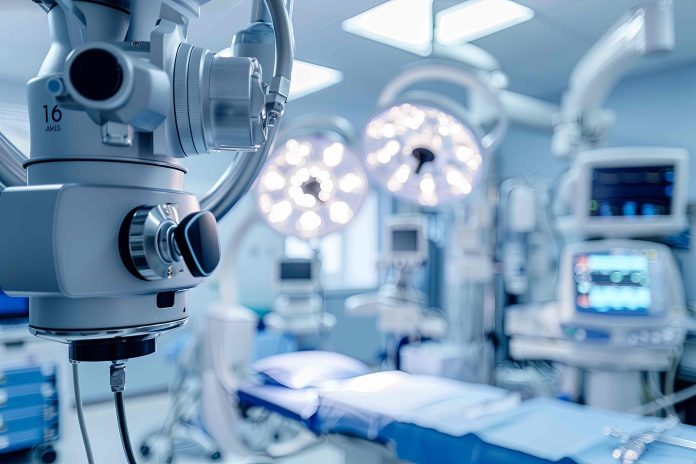Navigating the maze of medical device regulations can feel overwhelming. Fortunately, with the right guidance, you can steer your product through the complexities of compliance with confidence. Tapping into expert insights will enable you to meet legal standards while sidestepping costly errors.
Here’s the essential information you need to stay compliant and competitive in this demanding industry.
Understanding FDA Medical Device Approvals
The Food and Drug Administration (FDA) oversees medical device approvals in the US. Your device’s classification dictates the regulatory path:
- Class I: This category includes low-risk devices such as bandages and handheld surgical instruments. These require general controls and are often exempt from the premarket notification process.
- Class II: This refers to moderate-risk devices like infusion pumps and diagnostic equipment. These need general and special controls, including a premarket notification to demonstrate that the new device is as safe and effective as an already approved device.
- Class III: This applies to high-risk devices, such as pacemakers and implantable defibrillators. These require the most rigorous approval process, including premarket approval (PMA), which involves clinical trials and extensive documentation.
You need to submit accurate documentation, including technical files, design controls, and risk assessments. FDA’s Quality System Regulations (QSR) mandate that your manufacturing processes meet specific standards. Missing these requirements can delay approval or lead to rejection.
Importance of ISO Standards
ISO 13485 is the international gold standard for medical device quality management systems (QMS). Compliance with ISO 13485 is crucial when entering global markets, as many countries align their regulations with ISO standards. For instance, the European Union’s Medical Device Regulation (MDR) and the FDA often harmonize their requirements with ISO 13485.
The standard requires a comprehensive QMS that covers all aspects of medical device production, from design and development to manufacturing and post-market activities. It emphasizes regulatory compliance and risk management, ensuring organizations systematically identify and mitigate risks throughout the product lifecycle.
Engaging in medical devices consulting ensures you meet these standards, streamlining regulatory submissions and improving product reliability. Consultants provide expert guidance on aligning your QMS with ISO 13485, simplifying market entry and demonstrating your commitment to quality and safety.
Risk Management and Post-Market Surveillance
Risk management isn’t a one-time task. ISO 14971 outlines the steps for identifying, analyzing, and mitigating risks throughout a device’s lifecycle. This includes conducting thorough risk assessments during design and development and implementing risk control measures.
After your device is released to the market, ongoing surveillance is critical. This involves collecting and analyzing feedback, monitoring adverse events, and updating your risk management plans as needed. This proactive approach identifies potential issues early, allowing for timely corrective actions.
Consultants can guide you in setting up effective post-market surveillance systems, ensuring you’re prepared for inspections and audits. They help integrate ISO 14971 requirements into your processes, making it easier to maintain compliance and improve product reliability.
Intellectual Property (IP) Considerations
Protecting your intellectual property in the medical device industry involves securing patents, trademarks, and trade secrets to maintain a competitive edge. Legal consultants can help identify potential IP risks and develop strategies, such as drafting and filing patent applications and establishing confidentiality agreements.
Conducting thorough freedom-to-operate (FTO) analyses is necessary to ensure your device doesn’t infringe on existing patents. This analysis involves searching existing patents and publications to confirm that your product is clear of any potential legal conflicts. Overlooking this step could lead to costly litigation, delays, or halting your product’s market entry.
Staying vigilant about IP management throughout the product lifecycle includes continuously monitoring for potential infringements and updating your IP strategy as needed. Consultants can assist in understanding complex IP issues in different jurisdictions, ensuring robust protection for your intellectual property worldwide.
Regulatory Changes and Global Compliance
Regulations evolve, and keeping up with these changes is a full-time job. For example, the European Union’s Medical Device Regulation (MDR) replaced the Medical Device Directive (MDD), introducing stricter requirements. Similar regulatory updates occur in other markets like Canada and Japan.
Partnering with a consultant who understands global regulations can save you time and resources. They’ll help you adapt to new rules and ensure your products meet diverse market requirements. This global perspective minimizes risks and opens doors to international growth.
Cybersecurity and Medical Devices
As devices become more connected, cybersecurity is a growing concern. The FDA has issued guidelines emphasizing the importance of protecting patient data and device functionality. So, you need to identify potential threats, implement safeguards, and develop a response plan for cyber incidents.
A consultant experienced in cybersecurity can help you comply with these requirements. They ensure your device is secure and compliant with both FDA guidelines and international standards.
Final Thoughts
Compliance in the medical device industry is a complex but crucial part of product development. By understanding key regulations, managing risks, and staying updated on global standards, you can position your product for success.
An effective strategy is partnering with experienced consultants who provide insights that streamline your processes, enhance product quality, and build trust with patients, providers, and regulators. With their expertise, you can focus on innovation while staying ahead of industry demands.


